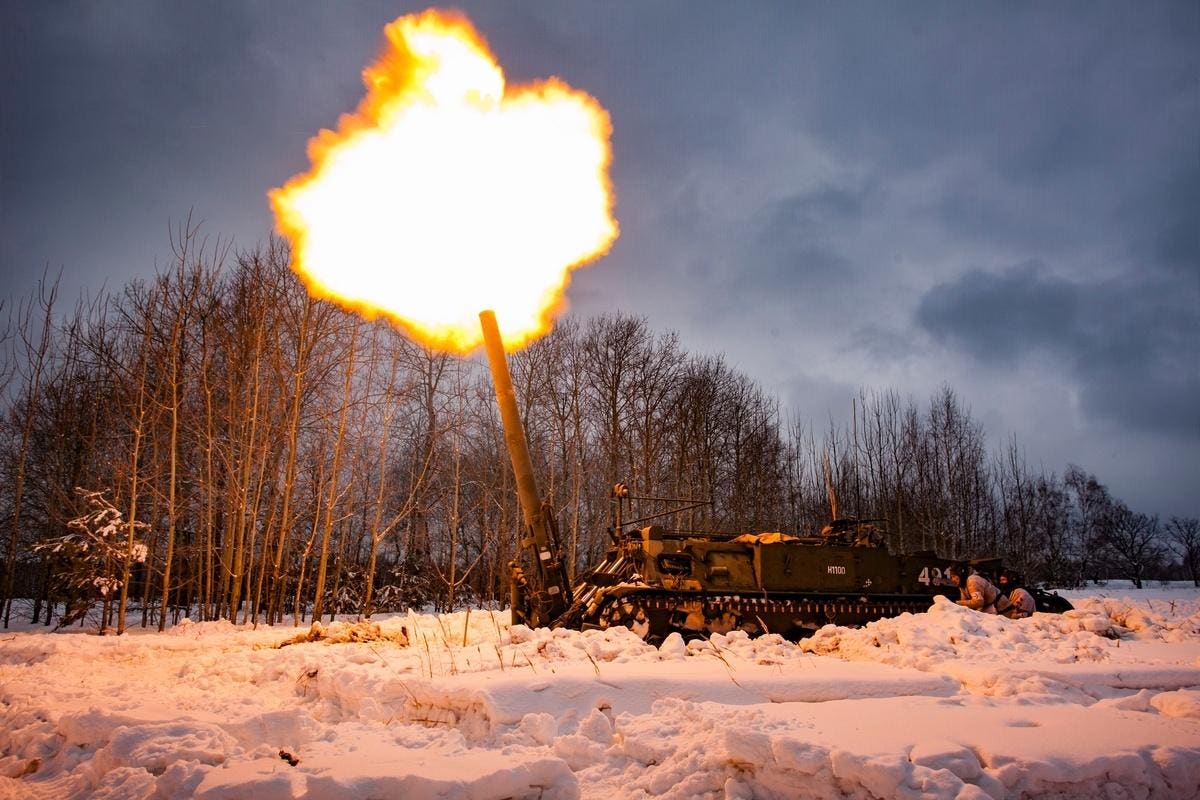The Russian army widened its war on Ukraine with around 50 self-propelled 2S4 Tulpans: hulking, 30-ton tracked vehicles hauling 240-millimeter mortars that lob 290-pound shells a distance of six miles. “Tulpan” is Russian for “tulip.”
Nineteen months later, Ukrainian drone operators have spotted, and Ukrainian artillery batteries have destroyed, no fewer than 18 of the nine-person 2S4s—around a third of the pre-war force.
At least one expert theorized the Ukrainians were making a special effort to knock out 2S4s. “They are likely a priority for Ukrainian counterbattery fire,” tweeted Rob Lee, an analyst with the Foreign Policy Research Institute in Pennsylvania.
It’s not hard to understand why. The 2S4 is uniquely destructive: a city-destroying siege weapon. Even when it misses, a 2S4 can wear down enemy troops. When the Syrian army deployed Soviet-made 240-millimeter mortars against the Israeli army in 1973, “many brave men succumb[ed] to mental fatigue under the relentless bombardment,” Israeli veteran Alon Harksberg wrote.
The Soviet army deployed 240-millimeter siege mortars during World War II. The 2S4 is a mobile version of the M-240 mortar the Soviets developed in the 1950s as a replacement for the war-vintage weapons.
The Soviet army had hundreds of 2S4s but put most of them in storage following the USSR’s collapse. The Russian army deployed just four 2S4s during the first Chechen campaign in 1994 and 10 2S4s during the second campaign in Chechnya in 1996.
During the ‘96 campaign, the huge mortars took aim at rebel forces in Grozny—and proceeded to flatten the city, according to Marek Depczynski, a professor at War Studies University in Warsaw. “In January and February 2000, in Chechnya, the 2S4 sets consumed about 1,510 missiles, including 1,410 high-explosive, 40 [anti-personnel] cassette and 60 guided 1K113 Smelczak ones,” Depczynski wrote.
“Thus one can risk an assessment that most of the buildings in Grozny could [have been] destroyed by Tulpans,” Depczynski added. A 2S4 shell that struck a five-floor building would plummet all the way to the second floor before exploding. “The demolition of a building of this size required two shells of the 2S4.”
Apparently desperate to prevent the demolition of their own cities, the Ukrainians have been hunting 2S4s. In one dramatic strike in May 2022, Ukrainian gunners scrutinized a Russian T.V. report on a front-line 2S4 crew, geolocated the mortar’s position in Luhansk Oblast in eastern Ukraine and blew it up with a precision artillery barrage.
That was the Russian army’s first 2S4 loss in Ukraine. Over the next 16 months, Kyiv’s batteries destroyed another 17 Tulips, the most recent on or before Monday. “Soldiers of the 45th Artillery Brigade appreciate that which is beautiful,” the Ukrainian defense ministry tweeted along with a video of the 2S4 exploding. “Here’s a bouquet from them to you.”
The Ukrainian army has made “2S4 mortar crew” a dangerous job description. But the campaign against Russian tulips is far from over. While the Russians went to war with just 50 or so 2S4s, they have at least another hundred of the giant mortars in storage.
Read the full article here





